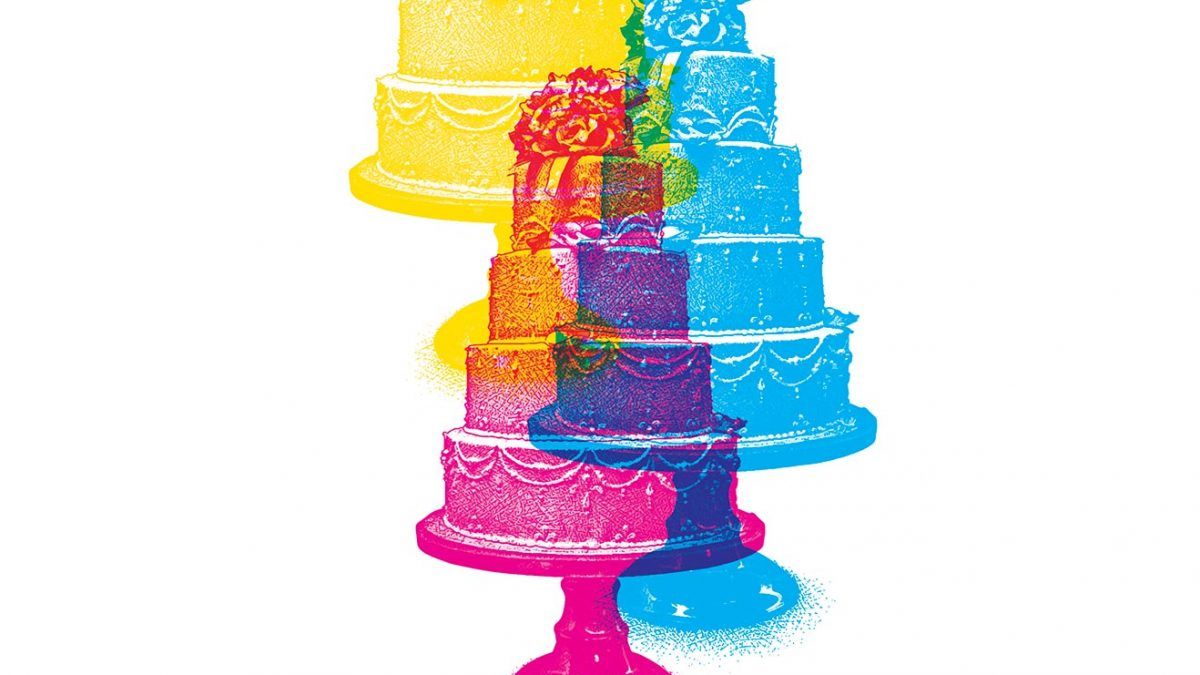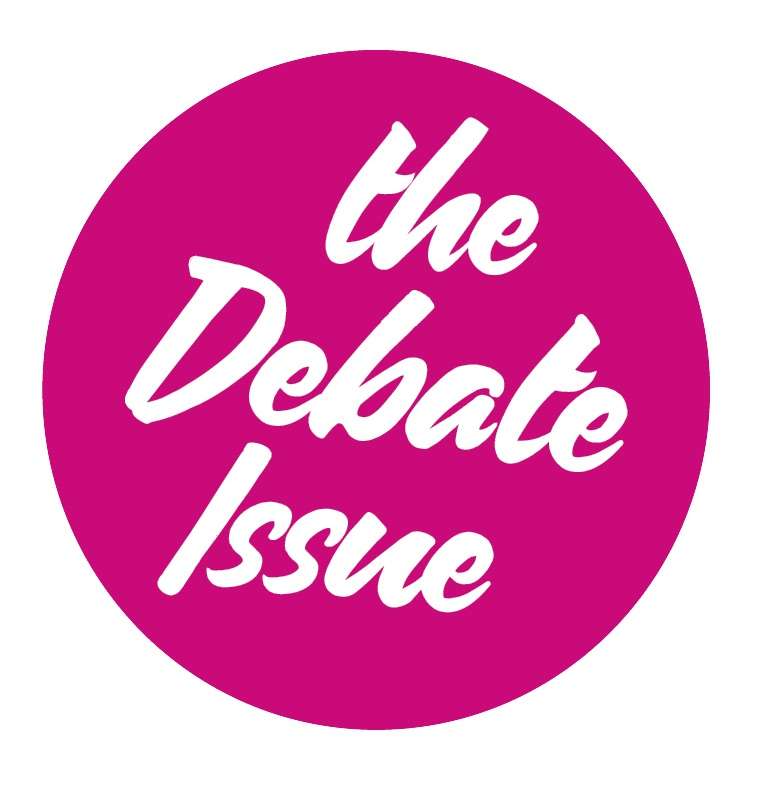Debate: Bakers Should Not Be Forced To Produce Cakes for Same-Sex Weddings
How should we feel about conscience-based discrimination?

AFFIRMATIVE:
Don't Use the Law To Compel Conformity
Manuel S. Klausner

Libertarians generally take a live-and-let-live approach, advocating freedom of association over anti-discrimination mandates. Moreover, a key aspect of libertarian policy is a commitment to choice and consent in personal and business relationships.
This approach is embodied in the Libertarian Party's 2016 platform, which reads: "Libertarians embrace the concept that all people are born with certain inherent rights. We reject the idea that a natural right can ever impose an obligation upon others to fulfill that 'right.' We condemn bigotry as irrational and repugnant. Government should neither deny nor abridge any individual's human right based upon sex, wealth, ethnicity, creed, age, national origin, personal habits, political preference or sexual orientation. Members of private organizations retain their rights to set whatever standards of association they deem appropriate, and individuals are free to respond with ostracism, boycotts and other free-market solutions."
During his 2016 presidential election campaign, candidate Gary Johnson unexpectedly stated in a debate not only that a Christian baker should be forced to design a cake for a gay wedding but also that a Jewish baker should be required to prepare a cake for a Nazi wedding. Others in the party criticized that rejection of the principles set forth in the L.P. platform, but Johnson refused to modify his position. This hurt him with his base, since many libertarians viewed his claim as flawed and indefensible.
Underlying the libertarian view on this issue is the recognition that in a market economy, there is a built-in financial disincentive for a baker to decline to sell to a potential customer. As support for gay marriage increases in America, it becomes increasingly unlikely that gay couples will encounter serious difficulty in finding a florist or baker for their weddings. When one vendor turns a couple away, there are numerous others lining up to win that couple's business. The economic harm falls squarely on the person with the moral qualms.
There's no doubt that emotional harm can result from being turned away from a business establishment because of who you love. But surely there is also harm when an American is forced to participate in an event that is contrary to his or her deeply held beliefs. A voluntary, market-oriented approach is the best way to reconcile the competing interests in such situations.
Reason Foundation filed an amicus brief with the U.S. Supreme Court in the case Masterpiece Cakeshop v. Colorado Civil Rights Commission. Like most libertarians, we believe that vendors should not be required by law to design and sell custom products for same-sex weddings to which they have conscience-based objections.
Reason has favored gay civil unions since the 1970s, long before they received widespread support. But we've always insisted that the law respect views held by minorities, and as libertarians we oppose using coercion to compel conformity in the private sector.
Support for same-sex marriage in the U.S. is at its highest point since Pew Research Center began polling on this issue in 2001. As of 2017, more than six in 10 Americans supported same-sex marriage; just 32 percent opposed it. Today, the small number of business owners who object to providing services for gay weddings are the minority whose rights need protecting.
In June, the Supreme Court ruled 7–2 in favor of Masterpiece Cakeshop's Jack Phillips based on the Colorado Civil Rights Commission's apparent hostility to his religious views. In the majority opinion, Justice Anthony Kennedy noted that the commission had permitted at least three other bakers to refuse to provide cakes expressing sentiments opposed to same-sex marriage, even as it threw the book at Phillips for not wanting to use his artistry to endorse a same-sex wedding.
Yet the decision failed to resolve this issue once and for all in favor of business owners with moral reservations. It left open the possibility that laws compelling bakers and florists to participate in marriage celebrations against their will could be upheld, as long as the state or city applied the regulation even-handedly.
"A voluntary, market-oriented approach is the best way to reconcile competing interests."
No one could credibly argue that gay marriage in Colorado is threatened by Phillips' religious convictions. But liberty is threatened, both by the heavy-handed conduct of the Colorado Civil Rights Commission and by Justice Kennedy's short-sighted opinion.
If and when this question returns to the Supreme Court, the justices should invoke the twin First Amendment protections of expressive speech and religious freedom to convincingly support tolerance for unpopular views in a pluralistic society.
NEGATIVE:
Cake Baking Simply Is Not Speech
Eugene Volokh
The Free Speech Clause, the Supreme Court has long held, protects the freedom not to speak as well as the freedom to speak. And this freedom not to speak must include the freedom not to create speech, and not to participate in others' speech.
A freelance writer shouldn't be forced to write press releases for the Church of Scientology, even if he's willing to work for other religious groups. A musician shouldn't be forced to play at Republican-themed events, even if he plays at other political events, and even in a city (such as Seattle or D.C.) that bans businesses from discriminating based on political affiliation. Likewise, a photographer shouldn't be forced to create photographs celebrating a same-sex wedding, and a wedding singer shouldn't be forced to sing at such a celebration.
But this right must have its limits. It is a free speech clause, not a freedom of action clause, and courts thus must distinguish speech (and a limited zone of symbolic expression that is basically tantamount to speech) from other behavior.
The Free Speech Clause doesn't give a limo driver a legal right not to drive a couple from their same-sex wedding. It doesn't give a chef a right not to serve certain people at his restaurant. Subway calls its sandwich makers "sandwich artists," but that doesn't give it a Free Speech Clause right to discriminate among would-be patrons of such arts. The same is true for bakers, even ones who create beautiful cakes for use at weddings. It is generally constitutional—whether or not wise or just—for the law to compel behavior, and only a small subset of such compulsions violates freedom of speech.
Courts have recognized the need to distinguish speech from conduct when it comes to speech restrictions, and the Supreme Court has rejected "the view that an apparently limitless variety of conduct can be labeled 'speech' whenever the person engaging in the conduct intends thereby to express an idea." A city would violate the First Amendment by, say, restricting the number of newspapers or freelance writers that may operate there. But a city may limit the number of butchers or cab drivers—unwise as such regulations usually are—because those activities aren't treated as speech.
The same is true for restaurants or bakeries, even ones that create beautiful dishes or beautiful cakes. And if a restriction on the ability to bake cakes isn't a speech restriction, then a requirement to bake cakes (even for ceremonies one disapproves of) isn't a speech compulsion.
Now, requiring a baker to make a cake containing pro–gay marriage text or pro–gay marriage symbolic expression—pictures of two grooms or a rainbow motif, say—would indeed be compelled speech. But in the Masterpiece Cakeshop case, the baker apparently refused to make any cake for a same-sex wedding, without even discussing the design. That's a refusal to do, not a refusal to speak.
Nor is it enough that wedding cakes are supposed to be aesthetically pleasing. Hairstyles are similarly aesthetic, and can convey links to particular attitudes. But a hairdresser who, for instance, refuses to do cornrows for a white customer or refuses to cut a woman's hair in what he sees as an improperly masculine style can't claim a First Amendment freedom from compelled speech. For every Masterpiece Cakeshop there is a Masterpiece Hair and a Masterpiece M.D. plastic surgeon—and even a Masterpiece Limousine and a Masterpiece Plumbing (all real business names). The Free Speech Clause does not protect them all.
To be sure, if you believe religious objectors should be presumptively exempted from generally applicable laws—for instance, under the Free Exercise Clause—you might think this covers bakers who think it's sinful to prepare cakes for same-sex weddings. (That would then raise difficult questions about when the presumption of religious exemption can be rebutted.) But the Supreme Court has held that the Free Exercise Clause doesn't secure such a right; that provision generally protects only against deliberate religious discrimination by the government. (The Court in the Masterpiece Cakeshop case found evidence of such discrimination in the Colorado proceedings, but that won't be so in many other similar cases.) The federal Religious Freedom Restoration Act (RFRA), which authorizes some such exemptions, doesn't apply to state laws. And Colorado doesn't have its own RFRA.
Our Constitution isn't a libertarian document. It is a document that creates a charter for democratic government, with some protection for specific individual liberties, but generally in specific, identified zones. The freedom to speak—and not to speak—are included. But those freedoms don't cover everything, and they don't cover cake making.
This article originally appeared in print under the headline "PROPOSITION: Bakers Should Not Be Forced To Produce Cakes for Same-Sex Weddings."


Show Comments (423)